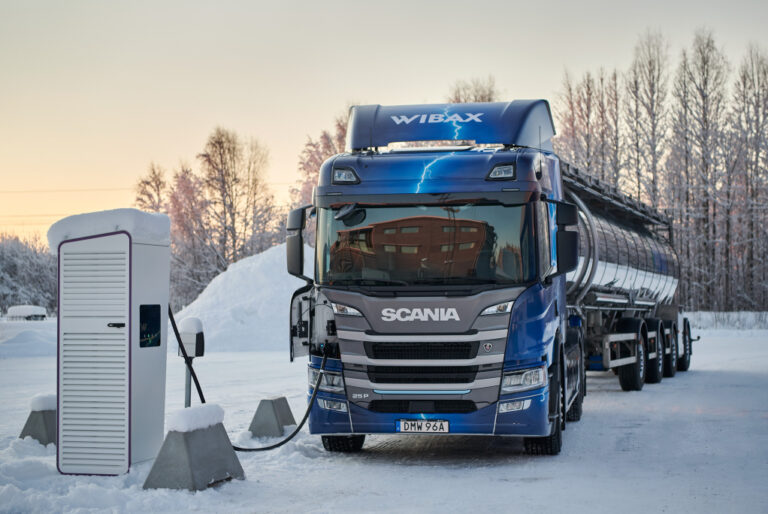The UK government will put £200 million funding into four demonstration projects aimed at promoting zero emissions trucks and putting more electric heavy goods vehicles (eHGVs) onto the roads.
The Department for Transport announced this morning (19 October) that in partnership with national innovation agency, Innovate UK, it will fund both rolling stock and infrastructure to support low carbon freight transport.
HGVs contribute around 20% of all transport emissions in the UK, but with freight and logistics “the beating heart of our economy,” as Roads Minister Richard Holden described them, their decarbonisation will be a key piece of achieving net zero policy goals.
In all, the funding will put up to 370 electric HGVs into action, while also building 57 refueling and charging sites.
While that seems a small step compared to estimates of 400,000 HGVs being driven on UK roads each year, the demonstration project could be significant in helping to de-risk the transition to electrified heavy transport, the Road Haulage Association’s Richard Smith said.
“The real-world demonstrators will answer many of the practical questions operators have and, in turn, give our members the confidence to invest in the zero emission lorries needed to drive down carbon emissions from our sector,” Smith, who is managing director of the national trade group, said.
Roads Minister Holden was at the premises of one recipient, EV charging station contractor Voltempo, as the announcement was made. Voltempo aims to get one of the first electric HGV charging stations in the country built.
Another recipient, GridServe, said today that it is leading a consortium of 33 organisations developing Electric Freightway, an eHGV charging network project. Regular readers of Current± will likely know GridServe as the operator of the Electric Highway motorway roadside charging network and its charging Super Hubs, powered by renewable energy.
Electric Freightway will represent more than £100 million of investment, about two-thirds of which (£62.7 million) is government funding.
With GridServe providing eHGV charging hubs in both motorway and commercial depot locations, with 200 chargers catering for about 140 vehicles. While the chargers will be 350kW each, the consortium will also trial the use of two 1MW charger units.
it will be a “pioneering project” that aims to “move the needle in the debate about how to deliver net zero transport for heavy goods vehicles,” GridServe CEO Toddington Harper claimed.
“We look forward to demonstrating and proving that battery powered electric heavy goods vehicles represents the optimum path to choose, delivering significant benefits over other technology routes in respect of ease and scale of deployment, driver experience, and favourable economics.”
While the switch to electric for HGVs is aligned with UK government policy goals including net zero emissions and the phaseout of internal combustion engine (ICE) vehicles, activity has so far been limited, in part due to the technical challenge of putting batteries large enough onto them without hampering their mobility or ability to carry heavy freight.
In June, Current± reported that one company, Pragmacharge, has launched what it claimed is a modular platform to offer ‘electric-trucking-as-a-service’ for commercial fleet operators in the UK and in continental Europe.






